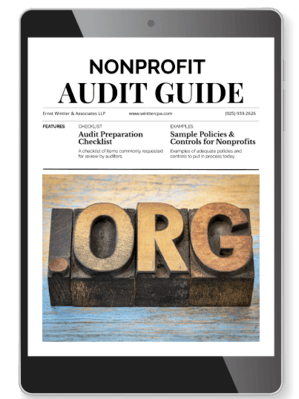Requests to return donations do not happen often, but every once in a while, your nonprofit might receive a request to return either a cash donation or the donation of an asset. How do you respond to such a request? Does the law require you to comply with a request to return a donation? What if an individual or organization asks for a donation back and your nonprofit has already spent most of the money?
Receiving a request to return a donation generates a wide variety of issues. Let’s see how your nonprofit can walk the fine line between keeping and returning a donation.
What Does the Law Say?
The United States Congress has not passed a federal law that requires nonprofits to return charitable donations. Some states have passed legislation that establishes the guidelines for creating a nonprofit and within the guidelines, describe the process for returning donations. Nonetheless, most state laws that address returned donations use vague legal language that assumes a donation no longer belongs to a donor once a nonprofit organization accepts the donation.
Working with a nonprofit auditing firm can help you decide whether your organization is obligated under state law to return a charitable donation.
What Are the Common Reasons Why Donors Ask for Donations Back?
Donors have many different reasons for requesting the return of a donation. One common reason involves a donor believing that a nonprofit has wasted donated funds and assets. Another common reason is when a donor does not think a nonprofit is fulfilling its charitable purpose. This might arise from a difference in operating philosophies between a donor and a nonprofit organization. A donor might claim a nonprofit is not spending the funds donated in the way the donor detailed. Finally, a donor can simply have a change of heart and no longer supports a nonprofit organization’s cause.
Although nonprofits are not legally required to return donations in most cases, mishandling requests can damage public trust and reputation. Establishing a clear donor agreement and maintaining open communication helps prevent these disputes. Consulting with legal counsel or reviewing IRS guidance on charitable contribution rules can also protect your organization from liability.
When is a Donation Return Mandatory
Donors wanting assurance that their donations go towards a specific cause and purpose can request a written agreement that details the specifics of a donation. If a nonprofit significantly violated the terms written into a donation agreement, the nonprofit must return the funds.
For example, if a donor declares in a written agreement that a donation should go to the victims of a natural disaster, but instead, the nonprofit spends the donation on administrative expenses, the nonprofit must return the donation. Another example of a mandatory donation return is when an employee embezzles donated money from a nonprofit’s bank account.
Be Proactive
Your nonprofit should not wait for donation disputes to develop. Instead, be proactive and clearly describe your nonprofit organization’s policies when it comes to donations. Create a written policy that explains the circumstances that justify donation returns. You should add language into a donation agreement that states that your nonprofit does not accept most requests for returned donations.
Make sure to put every donation agreement in writing and have it signed by the donor and a representative from your nonprofit. Getting the terms of a donation agreement in writing is especially important when your nonprofit receives donations that are worth a considerable amount of money. Establishing a minimum threshold for returning large donations should be up to your nonprofit.
Ernst Wintter & Associates provides California nonprofit audits, broker dealer audits, tax services, and 401(K) audit services. Contact us for more information.








